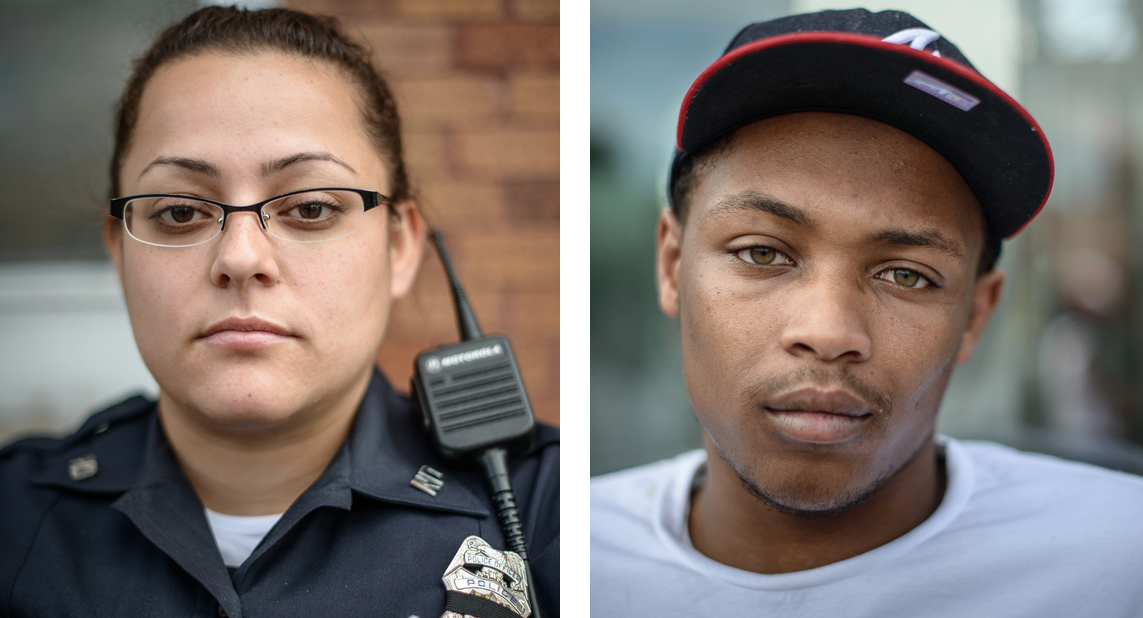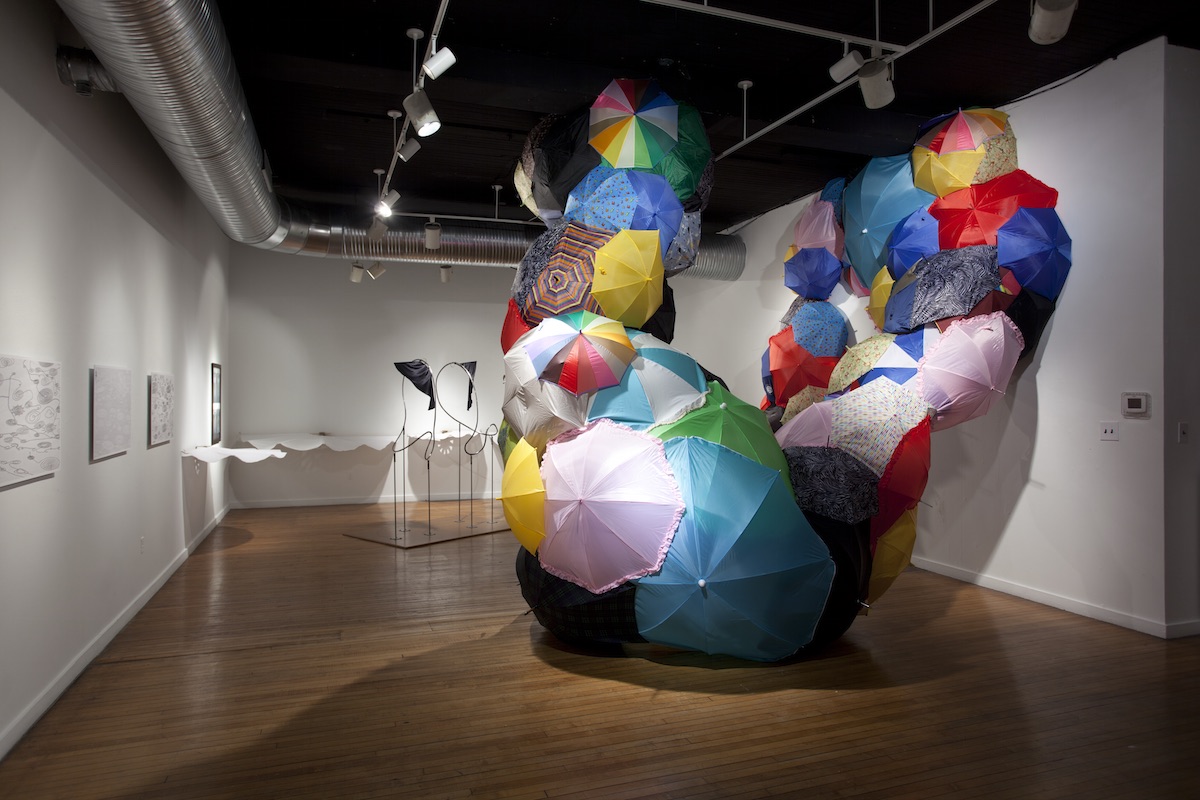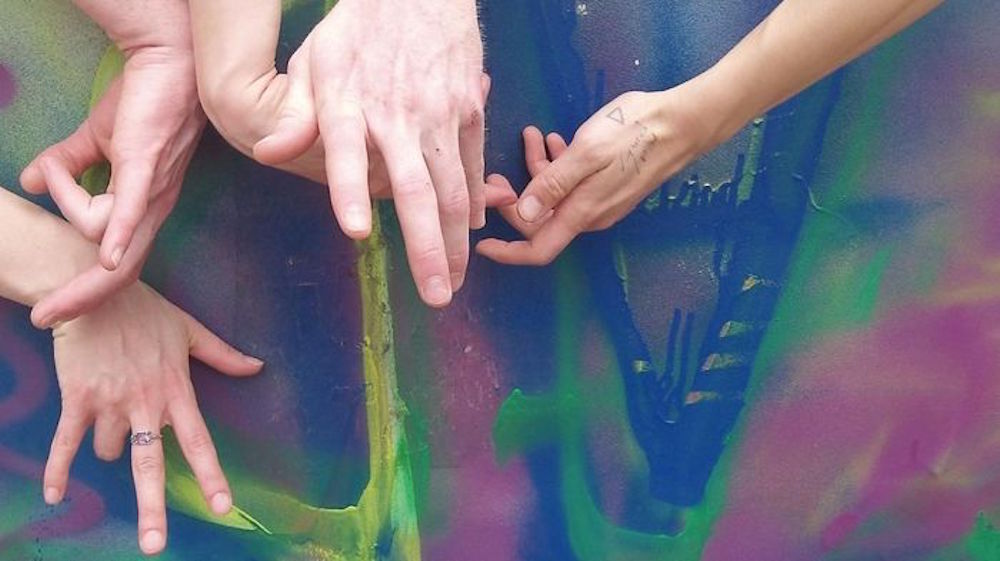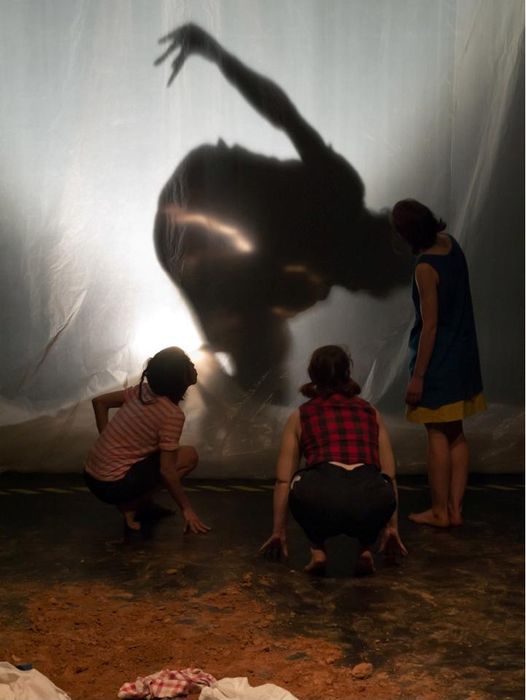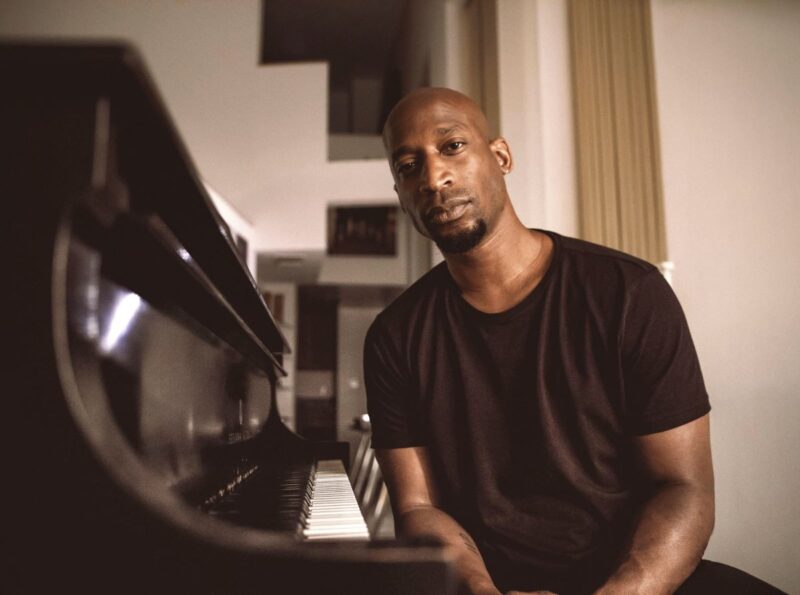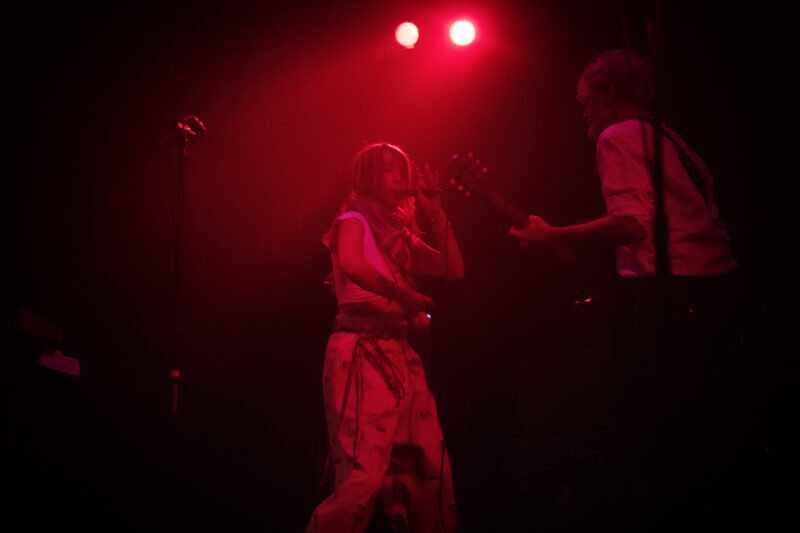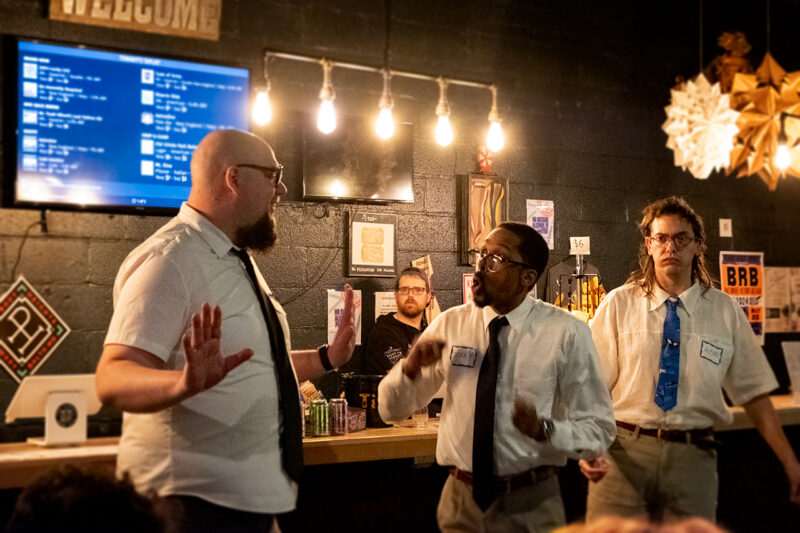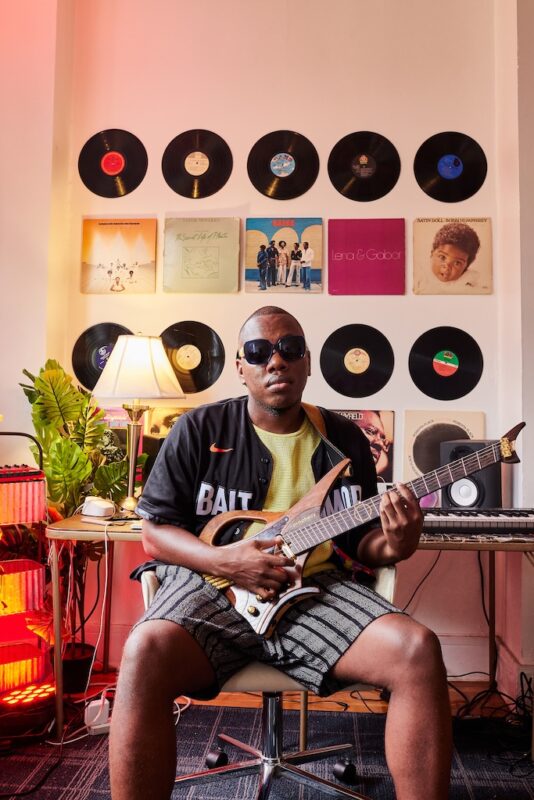John Barry on Naoko Maeshiba’s Newest Dance Performance
Whenever I leave Naoko Maeshiba’s choreographed/ dance/ performance art productions, there are always a few images that stick in my mind for a long time afterward. I don’t know if describing them is necessarily going to do them justice. But here’s what I left with after watching Dream Island, a must-see production, described as “part carnival/part laboratory” now in its final weekend at the Theatre Project:
- Plastic bananas piled in a ring of light. One real banana included.
- People going crazy on a beach.
- Plastic Wrap.
- Tiny dangling mirror balls.
- A gila monster grabbing a mass of college aged kids.
- A pile of laundry that starts to sing.
You get the idea. Or maybe not. Naoko Maeshiba has been bringing her unique performance pieces to Baltimore for about a decade, and she’s even harder now to pin down than she was when I first saw Paraffin in 2009. Her Performance Collective Ensemble goes under the moniker of Kibism, which she investigates the body and probes the invisible dimensions of life. If that doesn’t answer all your questions, check out her website. And if that doesn’t work, come check out this fascinating piece, and to do it with an empty mind.
Dream Island is a collective piece created in collaboration with three graduate students from Towson and MICA. Emily Hall, Sarah Lloyd, Donald Roderick and Danni Tsuboi are listed as co-creators and dancers. They work as a tight, funny, involved ensemble Maeshiba explains (and here I paraphrase the program) that the idea itself initiated when she heard about an Island called Yumenoshima (Dream Island), an artificially built Island in Koto, Japan, built of waste landfill. It is now the site of a tropical greenhouse, a yacht marina, and a wooden fishing boat exposed to nuclear radiation during the Bikini Atoll tests. Inspired by that image, under Maeshiba’s guidance, the ensemble collected and explored memories, impressions, songs, and images.
There’s a clearly defined artistic process behind Dream Island, and there’s a fascinating exhibit of the notebooks and sketches that went into creating the show, but, from my narrow perspective, this performance was all about the relationship between trash and found material. Little bits of material, songs, sand, trees, all given life is at the nexus, where a certain energy flows. The energy isn’t random. But the effect is. You wind up identifying, at certain points, and along certain lines, where a pile of laundry turns into something alive, where plastic bananas turn to trash.
I hope I’ve gotten your attention. If you go, look for those boundaries and ask questions. What happens when we enter a spotlight? Or when we leave it? When does a shadow turn into a living being? When does a dump turn into a dream? It will be a legal, mind-altering experience.
For tickets or more information check the Baltimore Theatre Project’s Website.
Author John Barry is a Baltimore-based writer and professor.
